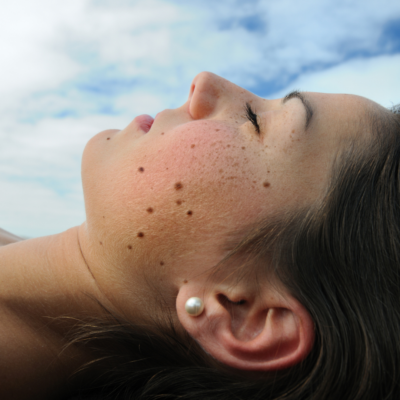Is it Dry Skin or Something Else?
We all know what dry skin feels like. This is especially true during winter months, when temperatures drop and harsher weather can leave skin itchy, cracking and peeling. Aside from being unsightly, dry skin is uncomfortable. But how do you know if it’s truly just seasonal dry skin that’s plaguing you? Since lack of adequate dermal moisture is a common concern, many patients make the mistake of dismissing parched skin as an uncomfortable and unavoidable annoyance that’s sure to pass when temperatures rise.
There are several steps one can take to remedy winter skin including using the right moisturizer and staying hydrated from the inside out by consuming fresh produce and enough water.
However, there are times when severe dry skin is an indicator of a more serious condition that requires professional attention by one of California Skin Institute’s talented dermatologists. Check out the conditions below to find out if the dryness is actually a symptom of another condition entirely.
Psoriasis
The signs of psoriasis are hard to ignore. This chronic condition causes red, flaky, and scaly skin to show up anywhere on the body. It is caused by an immune system glitch which signals skin cells to grow too quickly, without shedding the excess skin. Consequently, patches of dead, dry, unsightly skin can show up in areas like the arms, elbows, scalp and face. Patients suffering from psoriasis may feel self-conscious, uncomfortable and frustrated. Unfortunately, the winter months can exacerbate the affliction.
While there are several types of psoriasis that vary in severity, the most common form is psoriasis vulgaris. All forms of psoriasis tend to be triggered by genetic factors, so patients should not feel like the condition is brought about by poor diet or an inadequate skincare routine. If you feel like you may have psoriasis, it’s essential to get professional dermatologic treatment as soon as possible. Fortunately, here at California Skin Institute we offer leading technology to control psoriasis, including topical creams that soothe and diminish dry patches, the latest systemic and biologic medications, and laser treatments that can be helpful when symptoms are acute.
Eczema
Also known as atopic dermatitis, eczema can be confused with psoriasis by the untrained eye, which is why a proper diagnosis from one of California Skin Institute’s dermatologists is important. Symptoms of eczema include dry, red patches of skin that may also be itchy. Eczema tends to occur in parts of the body where the skin naturally creases, such as the inner elbows and behind the knees. Whether mild or severe, eczema can be treated by your local California Skin Institute provider. Since the winter season can often make symptoms of eczema worse, keeping skin extremely hydrated with a premium moisturizer can help alleviate symptoms.
If you think you have eczema or psoriasis, or just need help managing your dry skin, contact your nearest California Skin Institute practice to schedule an appointment.
Individual results may vary and are not guaranteed.



 / 291 Reviews
/ 291 Reviews